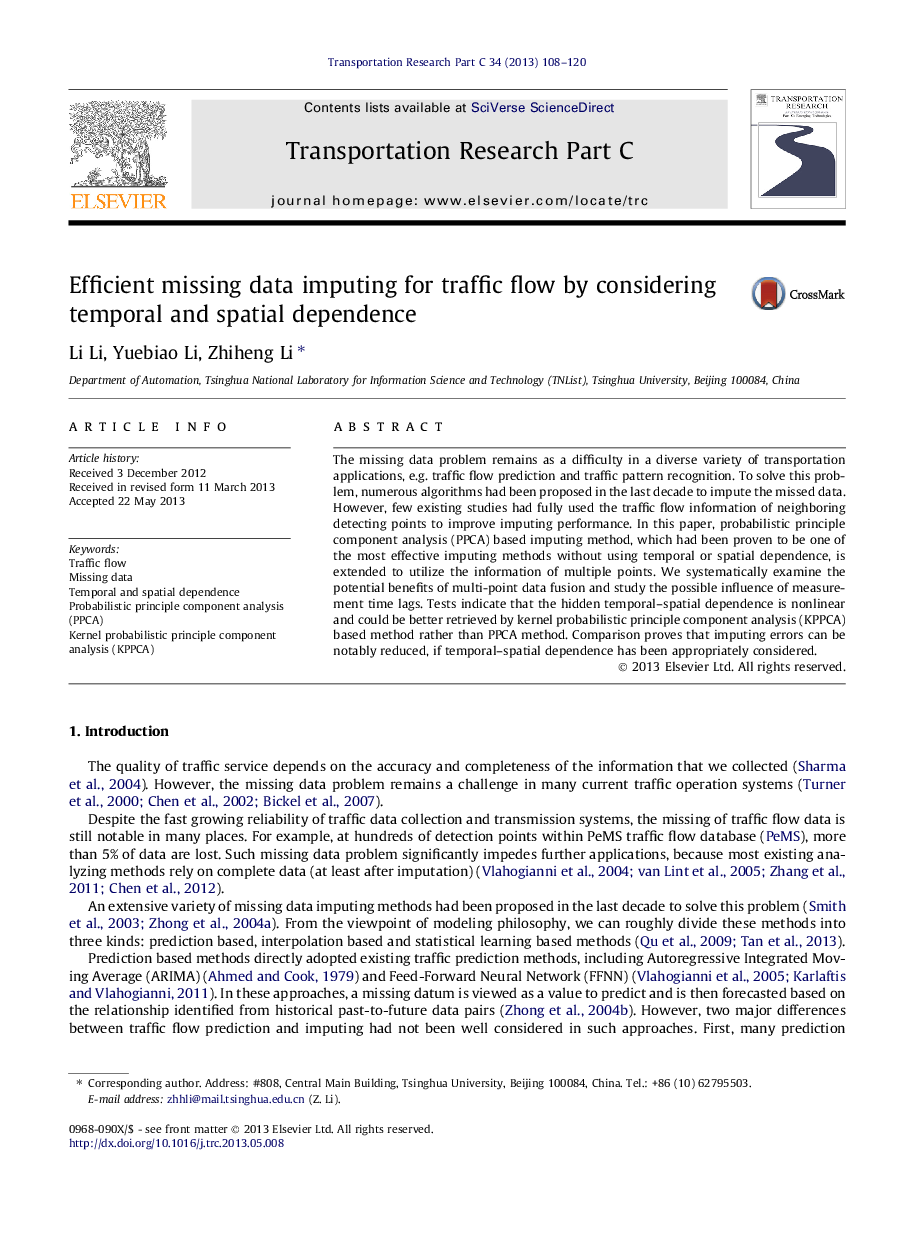| Article ID | Journal | Published Year | Pages | File Type |
|---|---|---|---|---|
| 525152 | Transportation Research Part C: Emerging Technologies | 2013 | 13 Pages |
•We enhance PPCA method by considering multiple sensors’ measurements.•We show imputing errors can be reduced by using temporal–spatial dependence.•We suggest a simple yet effective way to embed temporal–spatial dependence.
The missing data problem remains as a difficulty in a diverse variety of transportation applications, e.g. traffic flow prediction and traffic pattern recognition. To solve this problem, numerous algorithms had been proposed in the last decade to impute the missed data. However, few existing studies had fully used the traffic flow information of neighboring detecting points to improve imputing performance. In this paper, probabilistic principle component analysis (PPCA) based imputing method, which had been proven to be one of the most effective imputing methods without using temporal or spatial dependence, is extended to utilize the information of multiple points. We systematically examine the potential benefits of multi-point data fusion and study the possible influence of measurement time lags. Tests indicate that the hidden temporal–spatial dependence is nonlinear and could be better retrieved by kernel probabilistic principle component analysis (KPPCA) based method rather than PPCA method. Comparison proves that imputing errors can be notably reduced, if temporal–spatial dependence has been appropriately considered.
